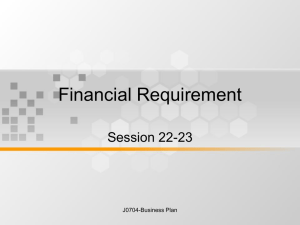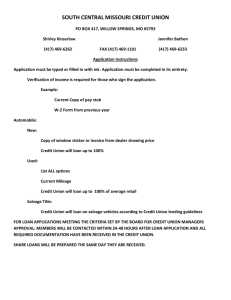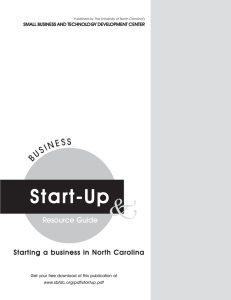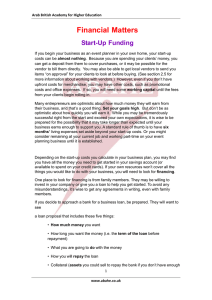Learning From Experience: Seeking a Loan for a Start-Up
advertisement
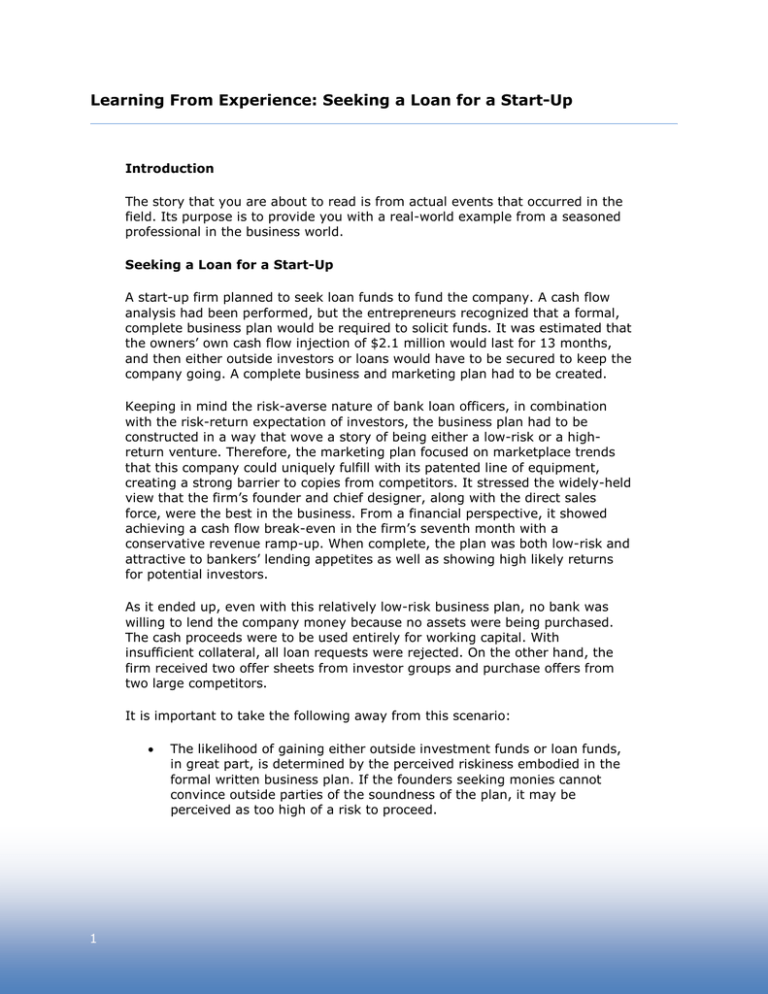
Learning From Experience: Seeking a Loan for a Start-Up Introduction The story that you are about to read is from actual events that occurred in the field. Its purpose is to provide you with a real-world example from a seasoned professional in the business world. Seeking a Loan for a Start-Up A start-up firm planned to seek loan funds to fund the company. A cash flow analysis had been performed, but the entrepreneurs recognized that a formal, complete business plan would be required to solicit funds. It was estimated that the owners’ own cash flow injection of $2.1 million would last for 13 months, and then either outside investors or loans would have to be secured to keep the company going. A complete business and marketing plan had to be created. Keeping in mind the risk-averse nature of bank loan officers, in combination with the risk-return expectation of investors, the business plan had to be constructed in a way that wove a story of being either a low-risk or a highreturn venture. Therefore, the marketing plan focused on marketplace trends that this company could uniquely fulfill with its patented line of equipment, creating a strong barrier to copies from competitors. It stressed the widely-held view that the firm’s founder and chief designer, along with the direct sales force, were the best in the business. From a financial perspective, it showed achieving a cash flow break-even in the firm’s seventh month with a conservative revenue ramp-up. When complete, the plan was both low-risk and attractive to bankers’ lending appetites as well as showing high likely returns for potential investors. As it ended up, even with this relatively low-risk business plan, no bank was willing to lend the company money because no assets were being purchased. The cash proceeds were to be used entirely for working capital. With insufficient collateral, all loan requests were rejected. On the other hand, the firm received two offer sheets from investor groups and purchase offers from two large competitors. It is important to take the following away from this scenario: • 1 The likelihood of gaining either outside investment funds or loan funds, in great part, is determined by the perceived riskiness embodied in the formal written business plan. If the founders seeking monies cannot convince outside parties of the soundness of the plan, it may be perceived as too high of a risk to proceed. Learning From Experience: Seeking a Loan for a Start-Up • 2 The implication of this is that the more industry knowledge can be used to create the plan, coupled with an awareness of the keys to success in the industry, the more likely the plan will be accepted and monies invested.


